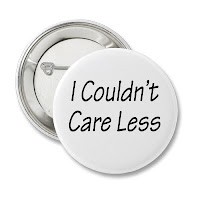Mom Blogging for Dummies Part 3: Blogging Ethics
Before purchasing and reading Mom Blogging for Dummies
I
had assumed that Chapter 9 “Mastering Blogging Ethics” was going to be the main
point of interest for me based off the title alone. To be fair, it was a great
chapter and I found it very informative it just didn’t cover any of the topics
I had expected. For a brief review of the entire book see “Mom Blogging forDummies Part 1: A review”.
What
Chapter nine did include was some very practical advice on both legality and
integrity when working with other brands, sponsors, or companies. The best part
of “Mastering Blogging Ethics” was Piersall’s informative break down of FTC
guidelines as they apply to blogging. She also walks us through editorial policies,
disclosure policies, privacy policies (regarding the collection/use of reader
information), conducting lawful giveaways and contests, truthful product
reviews, and tax laws that pertain to blog income. I repeat; Great.
Informative. Chapter. However, there’s so much more that could be talked about
outside of this mainly legal ethical angle on blogging.
Piersall is very clear on the
consequences of not knowing or abiding by her advice in this section, stating
that:
… unless you understand the rules about
writing compensated blog posts, you risk getting fined thousands of dollars by
the FTC, getting dropped from Google’s search engine results, and ruining your
reputation, thereby ruining your blogging business (ch 9, pg 1).
But what about the potential consequences of utilizing
personal information about your family and others’ experiences to make a
profit?
In the
article “Interactivity and Prioritizing the Human: A Code of Blogging Ethics” author Martin Kuhn composes and advocates for an ethical blogging code usable
by all blog genres (he mentions previous attempts that were only applicable to
journalistic blogs). In order to do this, Kuhn first determines the core values
of blogging by compiling research from new communication technology
scholarship, like that of David Gunkel and Debra Hawhee among others, with a
survey of bloggers themselves.
Khun’s research
culminated in the following code, which he proposes as a starting point in the
discussion on blogging and ethics:
Promote Interactivity: Post to your blog on a regular basis. Visit
and post on other blogs. Respect blog etiquette. Attempt to be entertaining,
interesting, and/or relevant.
Promote Free Expression: Do not restrict access to your blog by specific
individuals or groups. Do not self-censor by removing posts or comments once
they are published. Allow and encourage comments on your blog.
Strive for Factual Truth: Never intentionally deceive others. Be
accountable for what you post.
Be as Transparent as Possible: Reveal your identity as much as possible
(name, photo, background info, etc.). Reveal your personal affiliations and
conflicts of interest. Cite and link to all sources referenced in each post.
Promote the “Human” Element in
Blogging: Minimize harm to others
when posting information. Promote community by linking to other blogs and keeping
a blogroll. Build relationships by responding to e-mails and comments
regularly.
(Kuhn, 33-34)
It’s
interesting to see how this code compares to Piersall’s “Mastering Blogging
Ethics” chapter. Her focus seems to coincide with the principles of striving
for factual truth and being as transparent as possible but is lacking in those
having to do with accountability such as “minimize harm to others when posting
information” (Khun, 34).
Another
point of interest came from one of the questions in Khun’s survey, “who are the
‘stakeholders’ with regard to your blog? Who will be affected by what you
post?” (Khun, 28). Khun found that “the primary response …indicated that bloggers see
themselves as the primary and in some cases sole stakeholder” (Khun, 28). Only six
bloggers mentioned people they know in real life and only four mentioned people
who are the subject of blog entries as potential stakeholders (Khun, 28). Khun
states that his study was limited by the number of participants, so it’s
difficult to say whether this sample is actually indicative of bloggers in
general. But if bloggers are primarily concerned with their own interests, like
reaching success and making a profit, I can see why the trade-off of privacy
(whether their own or their family’s) in exchange for popularity could be
enticing.
Source:
Martin Kuhn (2007) Interactivity and Prioritizing the Human:
A Code of Blogging Ethics , Journal of Mass Media Ethics, 22:1, 18-36, DOI:
10.1080/08900520701315244



Comments
Post a Comment